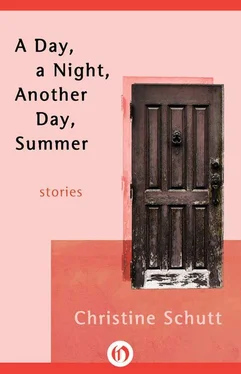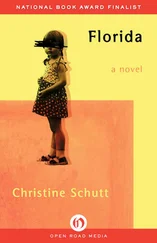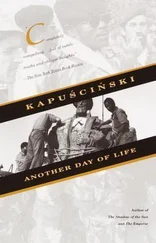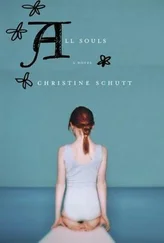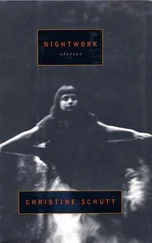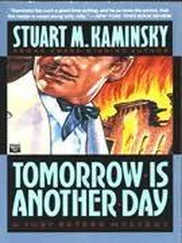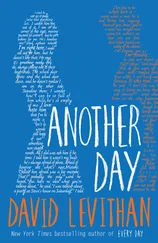Orlando says, “Don’t let Orin be there when I come. I don’t want Isabel to meet him.”
“Isabel,” she says, so that’s the friend’s name.
She misses Orlando.
Light, ease, expectation, youth’s surety, if she could only have it back. If she could have it back and be smarter. Stupid, she was stupid, swallowing pills before the purveyor explained them. She was tripping in the woods with no way home, stunned on the roof above the street fair. The girl she was sucked cock in cars until the head-on blare of air-conditioned air veered into violent headache. Why didn’t she think to move? Stupid to be loudmouthed, loaded, stoned, to be passing cars when the sign says not to, to be fucking and fucking indifferent guys. No wonder she got into trouble. The gloom of the makeshift clinic, a row of cots and castered screens to close off those induced by drips, a woman’s kind of suffering, she was not spared this, the mucousy consequence of fucking too freely. Stupid girl!
Orlando! She was smart enough at least to keep him.
The face in the reflective surface of the TV’s screen is middle-aged and sly — her own face, talking. She is talking on the phone to Orlando, saying, “Think of what you’ll miss if you don’t visit. The lighting of the tree, the fireworks over the park.” Rude surprise, this face she sees, but she keeps on looking at it, studying what happens as she talks and listens, until Orin turns the TV on and she disappears.
“Go fuck Sprint somewhere else!” he says.
The yarl of the sports announcer making his pitch, the shush of small confessions, advertisements, music.
“Whisper,” she says to Orlando, then all they do is breathe. Close, long sounds — is he sighing? Orlando is at her ear, her ear pressed hard against the receiver, her burning ear into which he is pouring his sincere, sweet self!
“Come home,” she says to the boy, “and bring your girl.”
“I don’t want there to be a fight,” Orlando says, and she tells him there won’t be, just watch.
Watch the way the drinking works on Orin’s body, a bag of sand sagged in the easy chair, bobbing in the sprung-seated easy chair, a shapeless shape, a clay pale, a damp face, a man drunk on vodka, the bottle of which he keeps at hand.
The foamy spittle in the corners of his mouth repels her.
Maybe Orlando should stay at a friend’s, maybe he is right when he says home’s too dangerous.
“Only think about it,” she says to the boy.
Orin, in the background, is the scary noise.
Orlando says, “No, I can’t, not this time.”
And not when the new growth pinks the slick branches, not in spring, when Orlando needs sleep.
He says, “Mother, think.”
She thinks of the constant sounds from year to year, the machinery’s wail in summer and in the fall the sound of children from the next-door school. The piercing nag, the way the bully rules — such certitude! — children talking, endlessly talking. They have so much to say. Winter, then, the inward month; in winter the sounds are close. The sounds are of heat roiling from the radiators, creaks from the furniture, pipes. She likes these house sounds that go on until the weather changes, and the windows are opened, and it is spring, and summer is about to happen again.
Listen!
The future in her ears comes out like this.
THE LIFE OF THE PALM AND THE BREAST
THE MIRROR, THE MIRROR untethers the room and sets it afloat above the park. The mirror makes her tipsy, and perhaps she is tipsy here, turning to look out at the winter sky and shy black skyline, out at a dainty city with the lights come softly on. Such pleasures! The views from a building secure as a banker in his snug, plush coat — there is so much to be pleased by.
There is the flawless father who pleases her and the washed windows that front the seeping dark and pearly dusk. Inside, the colors she has picked are deep and expensive. Reds, blues. The fire is lit and the damp balsam, twisted up with spruce and draped along the mantel, smells green. Speckled pears, nuts, oranges — even a grapefruit — color the garland and double in the mirror they partly frame. No wonder she is dizzy.
Little boys are running through the room in velvet shorts. She cannot tell which boys are hers; they are so look-alike, she hesitates to take one.
“You?” The small neck pulses in her grip. There is, too, the familiar wet mouth, the cheeks, winter chapped and warm, the child-pungent hair she puts her face to.
The little boys at night in bed, they smell of soap the sheets are washed in; but in the morning, salty.
SPRING
The guests have gone and the children are asleep and the au pair is drying the dishes when she invites the flawless father, the same she calls by many other names and all of them endearing, she invites the flawless man for a walk outside. Just up and down a few of her favorite blocks, under the fringe of pear trees. The streetlights make a lace of their blossoms.
“We live in a pretty neighborhood,” she says, and he agrees.
The little boys use their Sunday palm as whips while the girl cousins quietly flank him, this father, her lover — their uncle! — the faithful man who promises the boys won’t, no, not to the girls they will not. “Boys!” is all he says, and the boys drag their fronds like sticks across the fencing.
The park side of the street is guttered with elm seeds, and the catkins she points out, aren’t they sexy?
The shy grace of new flowers in clean skirts, spring it is, yes, and the bare, skinned morning, opening slowly, seems to shiver.
“Yes,” she says in the tremulous light of late spring, Sunday, late, the children far below on the street at the park in the part of Sunday that is theirs, when she can walk through the kitchen undressed and calling to him, “What else would you like to eat?”
The flawless man says he would know where to find her on any afternoon, but his voice still comes as a surprise when the manicurist holds the phone to her ear, and she hears him ask, “Can you be ready for Paris — in an hour?”
Oh, it is fun to be rich and darling!
Wedding linen, cut flowers, drawers that shut soundly. The silver nested in felt bags, passed-down pieces, tarnished spoons, she warms them in her hands. Mother Pet's initialed tongs, the berry spoon from Nana.
It is always this way before a party, isn’t it? The dead are moving their mouths when the living come slamming in. “Back so soon?” she asks the boys. Caught in the spring rain, caught before lunch, the flawless father and the flawless boys are come back long before expected. “Stay away from me! Stay where you are,” she says. Stay there beyond the kitchen, where the muddy boots pant and lacrosse sticks drip wetly.
“You’re not still in Bermuda” is what she says to the boys when they sock-slide in the kitchen half undressed. Their bodies are tanned; only the flawless father isn’t peeling. His shoulders are hairless and smooth and freckled with runny freckles. She feels if the freckles are raised, and she feels how warm he is and keeps her hand at his back while he asks her who exactly is coming.
Pansy, Daphne, Lily, Georgia.
The young women friends, yes, he likes them — he likes all women, really, but these washed wands in small clothes especially! They are all legs and arms and don’t stand still to talk but rock on their hips and gesture. “Sorry, sorry, sorry,” they say. They are late but they are eager. Even if they swing in on crutches with their own young husbands just behind, the young women are jaunty. She watches from across the room how the young women surprise themselves with what they say to him.
First lilac, everywhere. Smell.
Читать дальше
